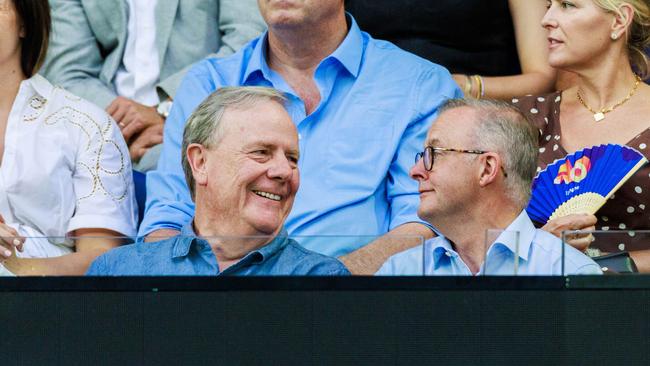Australian media faces ‘existential moment’, warns Nine chair Peter Costello
The local media industry is going through an ‘existential moment’ as it deals with Meta’s threat to not pay media companies for using their content, warns Nine chairman Peter Costello.

The Australian media was going through an “existential moment” as it deals with Meta’s threat to not pay media companies for using their content, warns Nine Entertainment chairman Peter Costello.
Mr Costello said the threat by Meta, which owns Facebook and Instagram, to put more journalism on free platforms was a danger to the future of reputable journalism.
“This is quite an existential moment for Australian media,” he said at a business conference in Sydney on Monday morning,
“If our media goes the way of everybody being drawn on platforms with free unedited content, then you won't have anyone investing in reputable media,” he said.
The former federal treasurer said Meta was a monopolist which needed to be subject to government regulation.
He said he believed it was in Meta’s interests to encourage the continuation of reputable journalism in Australia.
His comments followed the announcement by Meta that it would be pulling out of the industry bargaining code with the Australian media companies.
Mr Costello, who had just stepped down after 14 years with the Future Fund, said there were steps which the government could take to enforce the bargaining code.
He said both sides of politics in Australia were committed to enforcing the code, but he said there may need to be “some improvement” in the more regulation to enforce it.
Mr Costello said regulation was needed for global monopolies.
Former US President Franklin “Roosevelt first decided to regulate the Vanderbuilts and the Rockefellers at the turn of the century that you needed antitrust laws, which is what we call competition policy,” he said.
In the same way, he said, global monopolists, such as Meta, also needed to be subject to competition laws.
He said having journalism available for free online would deter companies from investing in reputable journalism.




To join the conversation, please log in. Don't have an account? Register
Join the conversation, you are commenting as Logout